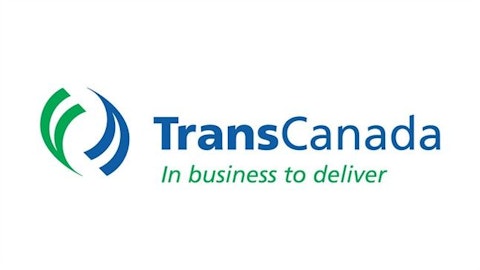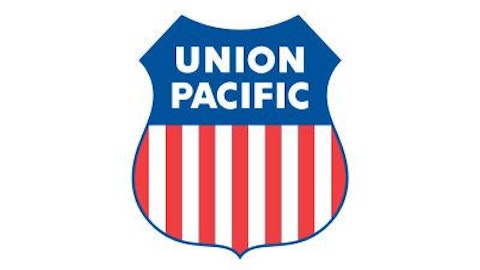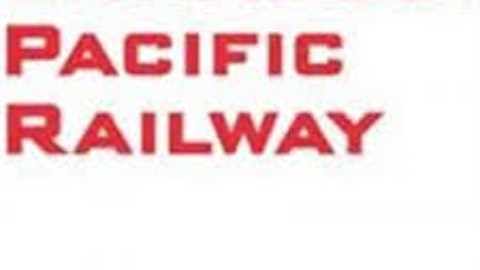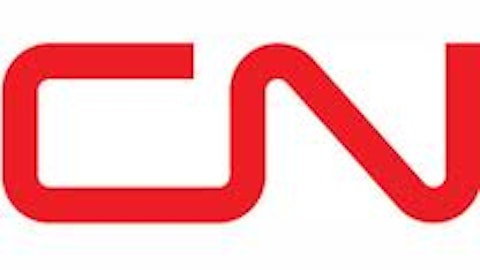In the past twelve months, Kansas City Southern (NYSE:KSU) has experienced significant gains on the market, heading from around $70 per share to $112.60 per share at the time of writing. At the end of 2013, Barron’s featured the company, thinking that Kansas City Southern (NYSE:KSU) could increase by around 20% in the next twelve months. So is Kansas City Southern (NYSE:KSU) cheap or expensive at its current price? Should investors buy the stock now? Let’s find out.
Leading position in Mexico railroads
Kansas City Southern (NYSE:KSU) is an operator of domestic and international railroads in North America, connecting key markets in the central U.S. with big industrial cities in Mexico. One of its subsidiaries, Kansas City Southern de Mexico, S.A., the key commercial corridor of the Mexican railroad system between Mexico and Laredo, Texas, serves the main industrial cities in Mexico and three big seaports. Many investors might know Laredo, as it carries more than 50% of all rail and truck traffic between the U.S. and Mexico. Moreover, Kansas City Southern (NYSE:KSU) also owns several other railway businesses, including Mexrail, Pabtex and Trans-Serve. Around 24% of the company’s total revenue was generated from the Industrial & Consumer Products market, while the Agriculture & Minerals and Chemical & Petroleum markets each accounted for 18% of the total 2012 sales.
Consistent growth with a reasonable amount of leverage
In the past four years, Kansas City Southern (NYSE:KSU) has experienced consistent growth in its top line and bottom line. Revenue increased from $1.48 billion in 2009 to more than $2.2 billion in 2012, while the net income rose from $68.1 million, or $0.60 per share to $379.4 million, or $3.43 per share during the same period. Kansas City is also considered a good cash generator. In 2012, its operating cash flow was $673 million and its free cash flow was $133 million.
What I also like about Kansas City is its strong balance sheet, which has a reasonable amount of leverage. As of March 2013, it had $3.18 billion in equity, $64 million in cash, and around $1.6 billion in debt. The company is trading at $112.60 per share, with a total market cap of $12.40 billion. The market seems to value Kansas City quite expensively, at 22.3 times its forward earnings.
But it was much more expensive than its bigger peers
Compared to its peers including Union Pacific Corporation (NYSE:UNP) and Canadian Pacific Railway Limited (USA) (NYSE:CP), Kansas City looks quite expensive. Union Pacific Corporation (NYSE:UNP) is trading at $157.50 per share, with a total market cap of around $73.5 billion. The market values Union Pacific Corporation (NYSE:UNP) at a much lower valuation than Kansas City, at 14.45 times its forward earnings. In the first quarter of 2013, around 20% of Union Pacific Corporation (NYSE:UNP)’s freight revenue was generated from Intermodal, while Coal and Industrial stayed behind, accounting for 19% and 18%, respectively, of the total revenue.
In the first quarter, Union Pacific Corporation (NYSE:UNP) has returned around $394 million in cash to shareholders by repurchasing 2.9 million shares at an average price of $136.58, pushing up the cumulative share repurchases of 94.5 million shares since 2007. There are still 12.2 million shares remaining under current authorization. If the company completed all of these share repurchases in the next 18-24 months, the total buyback yield at the current price should reach as high as 26%. For the full year, the company expected to improve its network efficiencies and experience continued gains in core pricing. The dividend yield is quite decent, at 1.8%.
Canadian Pacific Railway Limited (USA) (NYSE:CP) also has a much lower valuation than Kansas City. At $120.40 per share, Canadian Pacific Railway Limited (USA) (NYSE:CP) is worth around $21 billion. The market values the company at 15.36 times its forward earnings. Most of its freight revenue, around 41% of the total freight revenue, were generated from Bulk (including grain, coal, fertilizer and sulphur), while Merchandise and Intermodal represented around 34% and 25%, respectively, of the total 2012 revenue. For the full year 2013, the company expected to experience high single digit revenue growth and the EPS growth of more than 40%. The company also intended to increase its capital expenditure by $75-$100 million to upgrade signaling systems on the Moose Jaw to Chicago corridor, improve track work on North Main Line and acquire core assets to make the balance sheet stronger. At the current price, the company offers shareholders a dividend yield of 1.1%.
My Foolish take
Kansas City is quite expensive at the current price. However, the company seems to deserve it with its railroad leading position in Mexico. According to Barron’s, the company could be considered a long-term opportunity on Mexico and crude-oil transport upside. It is estimated to reach $130 per share in a year, and it also could be a potential buyout candidate for the much bigger guys like Union Pacific Corporation (NYSE:UNP) and Canadian Pacific Railway Limited (USA) (NYSE:CP).
The article A Long-Term Play on the Mexican Railroad originally appeared on Fool.com.
Anh HOANG has no position in any stocks mentioned. The Motley Fool has no position in any of the stocks mentioned. Anh is a member of The Motley Fool Blog Network — entries represent the personal opinion of the blogger and are not formally edited.
Copyright © 1995 – 2013 The Motley Fool, LLC. All rights reserved. The Motley Fool has a disclosure policy.




